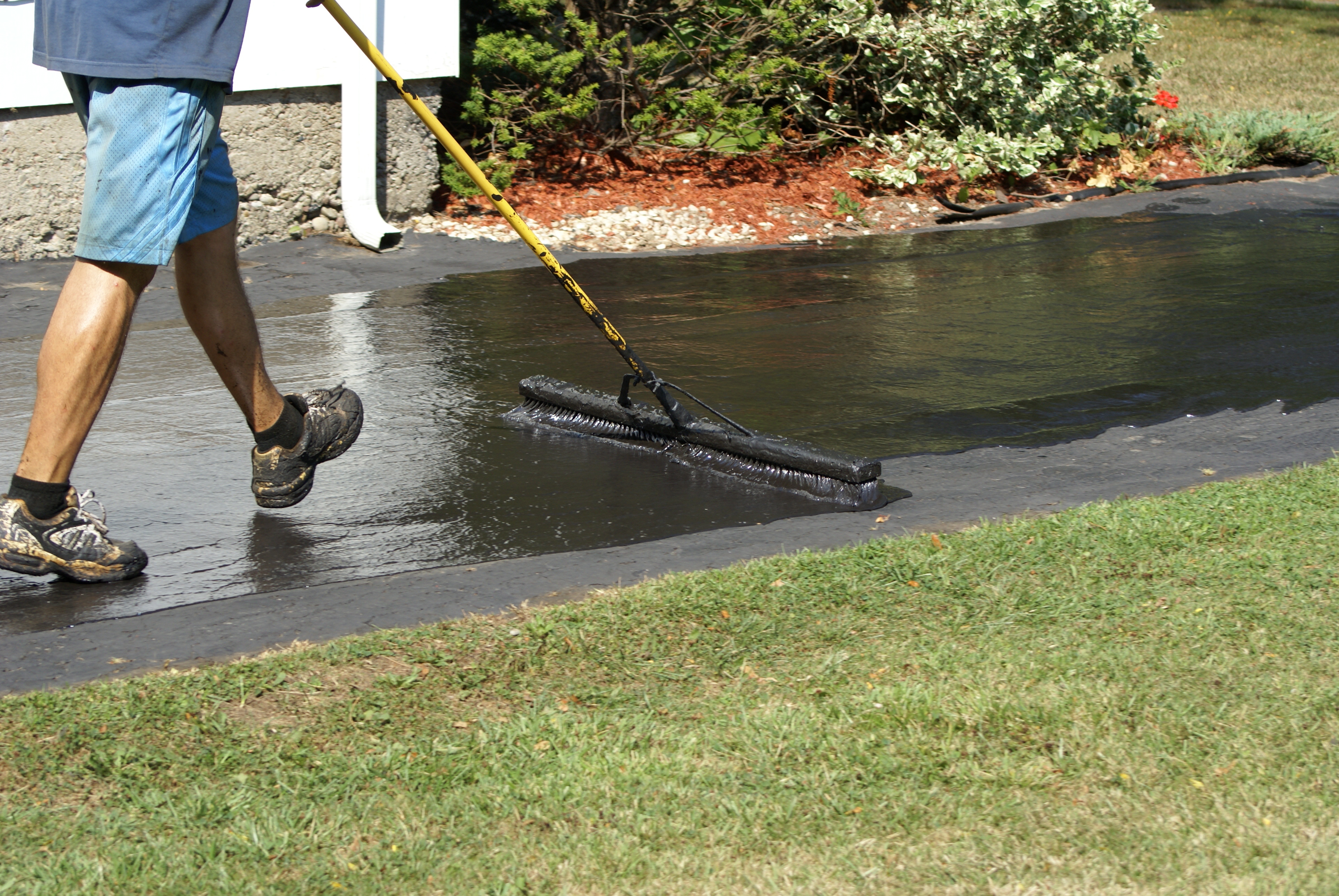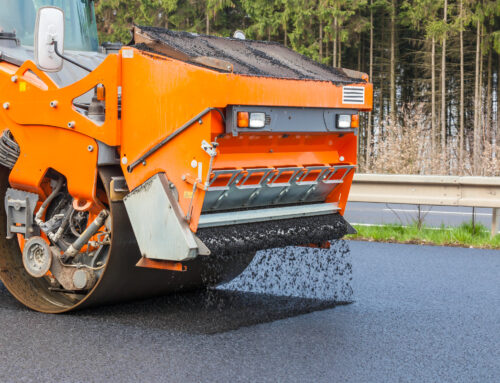Let’s get this out of the way right here, sealing asphalt driveways is a good idea. The pros far outweigh the cons. Don’t believe us? We’ll go over them and you can see for yourself! This time on the Sunrise Asphalt blog, sealing asphalt driveway pros and cons!
Sealing your Asphalt Driveway Pros and Cons
Pros
Renews and Refreshes Faded Asphalt
Fresh asphalt has that dark black color that evokes newness. Over time as the asphalt is exposed to the sun and other elements longer and long the pavement begins to fade. Sealing your asphalt driveway restores that fresh color to it giving it the appearance you want. That better appearance can also increase your property value!
Protects the Pavement
Pavement is made up of two parts. The asphalt and the gravel aggregate are made to be flexible and have give and take with the force and weight of the vehicles driving over it. As the weather hits it, water, gasoline or oil leak on to it, and the potent UV rays of the sun hit the surface, the binding material of the asphalt gets wrecked. This makes the asphalt brittle and more likely to crack and break which opens it up to the ultimate doom of all asphalt – moisture!
We talk about it time and time again, potholes develop because of moisture working its way into the asphalt and degrading the sub base. Sealing an asphalt driveway will help prevent that by creating a physical barrier.
Sealing is Cost-Effective!
You know what’s not cheap? Getting new asphalt every few years when the asphalt has been absolutely ravaged by the elements and wear and tear.
Having fresh asphalt laid down is expensive, costing on average between $1.50 and $2.00 a square foot, not including any line striping or curb installation. That’s just installing asphalt.
On the other hand, sealcoating costs between $0.15 and $0.25 per square foot. By investing in seal coating every few years, you’re minimizing the need for expensive repairs and extending the life of your pavement.
Cons
Not much honestly! Sealing your asphalt driveway will cost some extra money and require reapplication after a few years, but that work pales in comparison to what
Sealing Needs to be Maintained
Once your asphalt driveway has been sealed, it does need to be kept up. Sealing will last two to three years, so after a few years it will need reapplication. If you’re not someone who likes having to maintain things, this could very well be a con to you. For most folks it’s not a deal-breaker though.
Sealing Can’t be Done Immediately
Ok, maybe it can but it certainly shouldn’t. Fresh asphalt requires time to cure and harden to be structurally sound and usable. Any excess moisture or chemicals in the binder come to the surface and for the asphalt to fully harden. This will take three to six months, after which the asphalt can be sealed.
The Asphalt Needs to Be in Good Condition
This is a con only in the sense that it can make your sealing more difficult if this is the case but that’s not a guarantee. Sealing will act as a great preventative measure for your asphalt, but it can perform that service if the asphalt is already cracked and crumbled. So make sure that you complete any repairs your asphalt needs before going to seal it.
Now, looking at those cons paints a pretty clear picture about the downsides to sealing – there aren’t many! It may require your asphalt to be in decent condition, and it can’t be done right away but those are fewer cons of the sealing and more like necessary prerequisites. The pros far outweigh the cons in our estimation.
Alright, so now you know the sealing asphalt driveway pros and cons, you’re ready to make the decision for you. Need to know more? Want to get an estimate for sealing your asphalt driveway? You know what to do!





